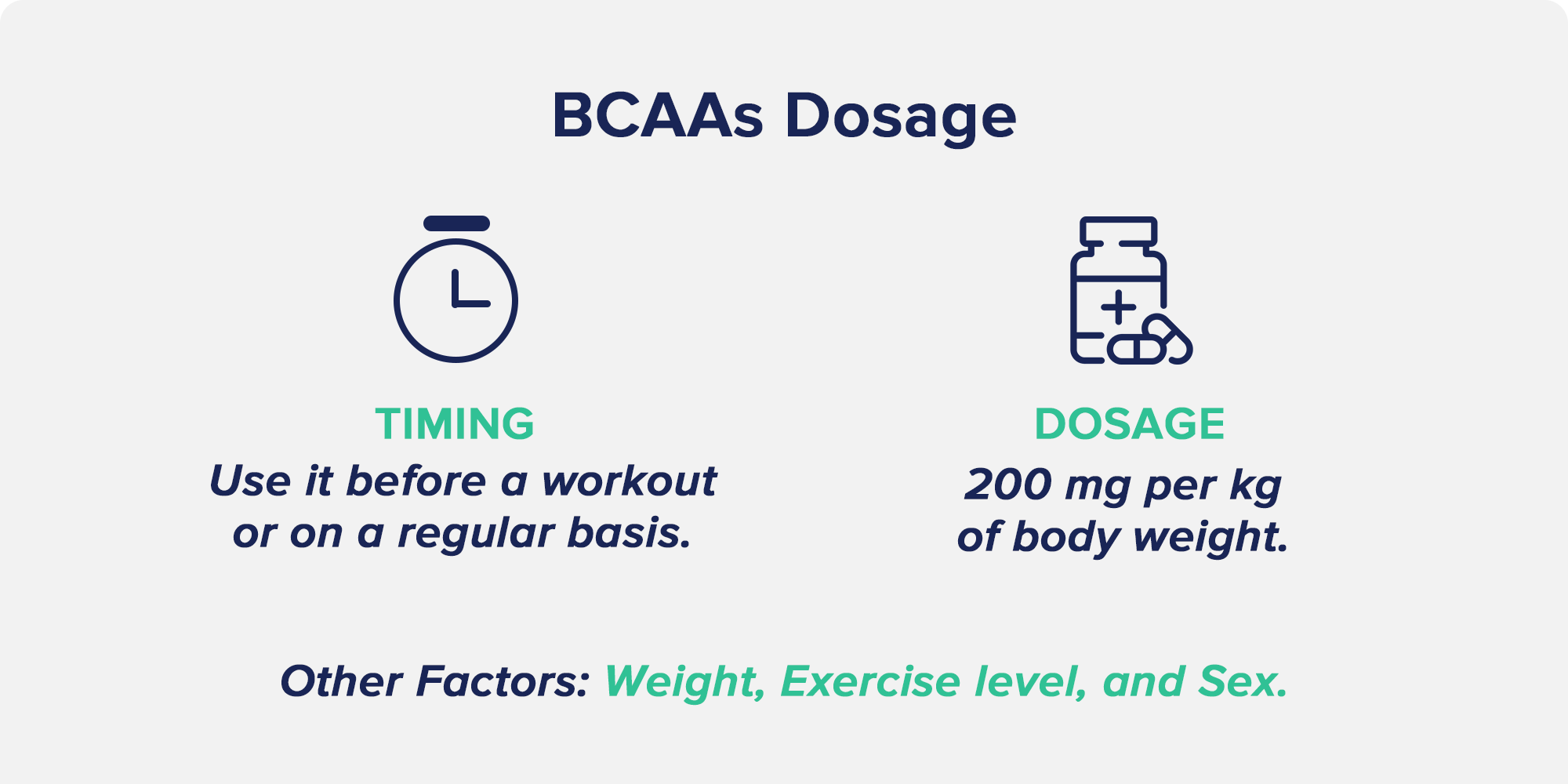Whether you take branched-chain amino acid (BCAA) supplements before, during, or after exercise may not be critically important. Overall dose, regularity, and prolonged use appear to matter more for their effectiveness.
Both elite athletes and recreational gym-goers commonly use BCAA supplements.
Some research indicates BCAAs might assist with building muscle, lowering exercise-related fatigue, and lessening post-workout muscle soreness.
Many people want to know the best timing for BCAA intake around workouts to maximize these potential benefits.
This article examines BCAA supplements in more detail and discusses how and when people typically take them.
What are BCAA supplements?
BCAAs are available as capsules or powdered mixes you can dissolve in water or other beverages.
The term refers to three essential amino acids — valine, leucine, and isoleucine — which share a branched molecular structure.
Most BCAA products provide roughly twice as much leucine as either isoleucine or valine, commonly labeled as a 2:1:1 ratio. Leucine is thought to be particularly effective at triggering muscle protein synthesis and limiting muscle protein breakdown.
That said, researchers are still evaluating whether isolated BCAA supplements confer a clear benefit over whole-protein powders or complete food proteins that naturally contain BCAAs.
At minimum, supplements offer a portable and convenient way to get these amino acids.

SummaryBCAA supplements contain the branched-chain essential amino acids leucine, isoleucine, and valine, often in a 2:1:1 ratio. They’re convenient, but it’s unclear if they outperform whole-food or complete protein sources.
How BCAA supplements may support your training
Evidence suggests BCAAs could support exercise in several ways:
- Reduce fatigue during activity. Higher BCAA availability can limit tryptophan’s access to the brain. Tryptophan is a precursor for serotonin, which is implicated in the development of exercise-related fatigue.
- Lower muscle damage and soreness. BCAAs may help decrease soreness that follows exercise-induced strain and inflammation.
- Encourage muscle growth after workouts. Protein containing BCAAs stimulates muscle protein synthesis while reducing muscle protein breakdown.
- Serve as an energy source during prolonged exercise. When muscle glycogen and blood glucose fall, BCAAs can be used as an auxiliary fuel source.
- Support immune function. Intense exercise can suppress immunity, possibly through reductions in glutamine — an important fuel for immune cells. Muscles can convert BCAAs into glutamine.
SummaryBCAAs may aid muscle building, serve as an energy source, bolster immunity, and reduce both exercise fatigue and post-exercise muscle damage.
Evidence on the best time to take BCAA supplements
There’s limited research directly comparing the effects of taking BCAAs or other protein supplements at different times, such as strictly before versus strictly after exercise.
Below is a look at the available data regarding BCAA timing.
Before versus after exercise
Only one small exploratory trial has directly compared taking BCAAs before exercise to taking them afterward.
In that trial, young men consumed 10 grams of BCAAs before performing strength exercises with their nondominant arm. Those who took BCAAs before exercise reported less post-exercise soreness and had lower blood markers of muscle damage than participants who took the dose after the exercise.
The only other relevant comparison involved athletic men who received 25 grams of whey protein isolate (about 5.5 grams of BCAAs) either immediately before or immediately after weightlifting over a 10-week training period.
Both groups experienced similar gains in strength and body composition.
Given the limited evidence, it remains unclear whether taking BCAAs before resistance training provides meaningful advantages over taking them after.
Timing window for BCAA intake
Blood BCAA concentrations peak roughly 30 minutes after ingestion, but studies have not established a definitive optimal timing.
Although there’s a traditional idea that you have a narrow 45–60 minute “anabolic window” after exercise to maximize muscle-building from protein, newer data suggest this window may extend to as long as five hours post-exercise.
Also, if you’ve eaten a meal or consumed a protein supplement 1–2 hours prior to training, the exact timing of post-exercise BCAAs or protein may be less critical than if you trained fasted, such as early in the morning.
BCAA supplements are easy to consume shortly before or after workouts, so if you feel a timing strategy helps you, it’s simple to implement.
During exercise
Research on taking BCAAs during workouts has mainly focused on endurance sports like running and cycling.
For example, 193 men in a marathon who consumed 16 grams of BCAAs during the race did not achieve faster finish times than those taking a placebo.
Studies in cyclists also failed to show performance improvements from BCAAs during endurance events, although supplements may reduce perceived mental fatigue.
SummaryAvailable research on optimal BCAA timing is limited. Taking BCAAs before versus after exercise may yield similar muscle-protective effects, and precise timing might not be required to support muscle growth.
Other factors that influence BCAA effectiveness
A recent review identified three factors that appear important for BCAA supplements to reduce exercise-related muscle damage.
First, daily intake should reach at least 91 mg per pound (200 mg per kg) of body weight.
For instance, a person weighing 165 pounds (75 kg) would need about 15 grams (15,000 mg) of BCAAs each day.
Second, benefits are more likely with continued use over the long term (more than 10 days), meaning you should take BCAAs daily rather than only on training days.
Third, dosing frequency may matter: dividing the total daily amount into two or more doses — for example, before and after workouts — could be advantageous.
Finally, remember that BCAAs alone aren’t sufficient to build muscle protein. There are six other essential amino acids required for complete protein synthesis, so consuming other protein sources is important.
SummaryTo protect muscle, BCAA supplements are more likely to help if you take about 91 mg per pound (200 mg per kg) daily, including on rest days, and consider splitting the total dose across the day.
Bottom line
BCAA supplements offer a convenient way to supply muscle-supporting amino acids, but it’s uncertain whether they outperform whole food or complete protein supplements.
Direct comparisons of taking BCAAs versus other protein sources at different times around exercise are limited.
Taking BCAAs either before or after workouts may provide similar muscle-protective effects, and precise timing appears less critical for supporting muscle growth.
What seems most important is getting an appropriate dose relative to your body weight and maintaining supplementation over time, including on nontraining days.

























Leave a Reply
You must be logged in to post a comment.